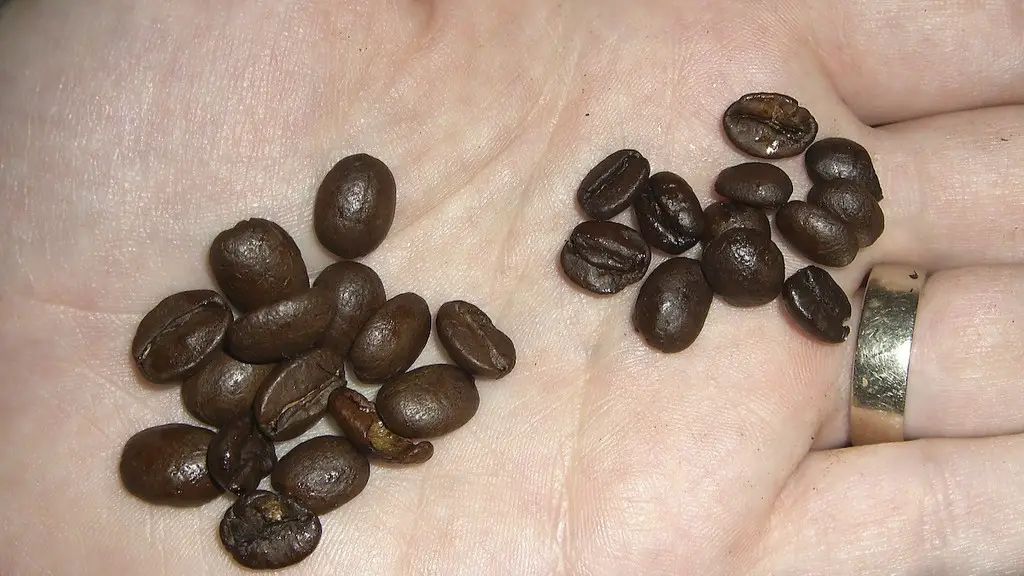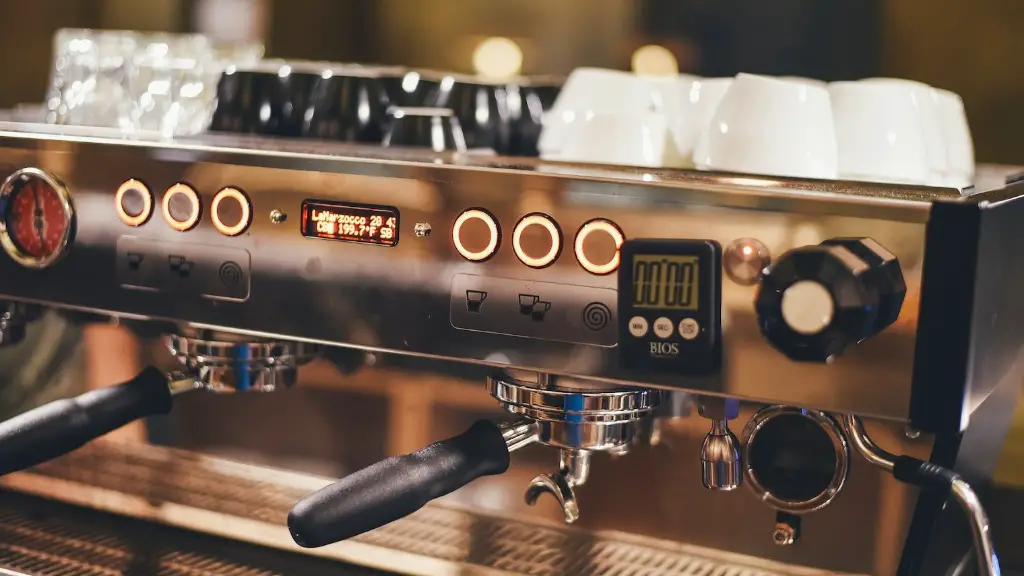For many people, coffee is an essential part of their daily routines. But for those on blood thinners, it can be difficult to know if coffee is safe to drink. Blood thinners are medications commonly prescribed to people who are at risk of blood clots and stroke, and because coffee contains caffeine, it may have an effect on the efficacy of these medications. Therefore, it is important to understand the potential risks and make an informed decision about whether or not coffee is safe for you to drink while taking blood thinners.
The primary concern with coffee is that it contains caffeine, which is a stimulant. Stimulants may interact with certain medications, including blood thinners, and cause a variety of side-effects. As a result, it is important to speak with a healthcare professional before drinking coffee while taking blood thinners.
In addition, caffeine has been shown to increase heart rate and may lead to an increase in clotting risk. While this has not been definitively proven in studies, it is still a possible concern and should be taken into consideration when consuming coffee while taking blood thinners. A healthcare professional can help you weigh the potential risks and benefits of drinking coffee, and determine if it is a safe option for you.
Of course, there are also other factors to consider when drinking coffee while taking blood thinners. Certain types of coffee may have higher levels of caffeine and this could have an adverse effect on your health. For example, espresso has higher levels of caffeine than regular brewed coffee and could have a greater effect on your blood thinners. Similarly, drinking large amounts of coffee could have a larger effect on your blood thinners than drinking a moderate amount and this should also be taken into consideration.
Finally, it is important to note that not all people will experience the same effects while drinking coffee while taking blood thinners. Everyone’s individual body chemistry and reaction to medications is different and it is important to speak with a healthcare professional who can provide advice specific to your needs.
Blood Thinners and Caffeine
Caffeine is a stimulant and can have an effect on blood thinners. A stimulant is a type of chemical that triggers changes in the body’s cells, which can result in an increase in heart rate, breathing rate, and blood pressure. This can potentially cause an increase in clotting risk, although this has not been definitively proven. Additionally, the amount of caffeine in the coffee and the type of blood thinners you are taking can also impact the potential risk associated with drinking coffee while taking blood thinners.
The primary concern with drinking coffee while taking blood thinners is the potential increase in clotting risk. Clots are dangerous and can cause a variety of health problems, such as stroke, heart attack, and deep vein thrombosis. If you are taking medications to thin your blood and then drinking coffee, it could have an effect on the efficacy of the blood thinner. This is why it is important to speak with a healthcare professional before drinking coffee and taking blood thinners.
Furthermore, caffeine may interact with other medications you may be taking, such as high blood pressure medications or other blood thinners. It is important to alert your doctor of any medications you are taking, as this can help them assess the risks associated with drinking coffee while taking blood thinners.
Alternatives to Coffee
For those who want the benefits of coffee without the potential risks of drinking it while taking blood thinners, there are a few alternatives. Caffeinated green tea and decaffeinated coffee are two options that contain reduced amounts of caffeine and can be a good choice while taking blood thinners. Additionally, herbal teas and other decaffeinated drinks are also available, which can provide the flavor of coffee without the caffeine.
It is important to note that decaffeinated coffee is not completely caffeine-free and still contains small amounts of the stimulant. Therefore, it is still recommended to speak with a healthcare professional about the potential risks associated with consuming decaffeinated coffee while taking blood thinners. That way, you can be informed about any potential interaction and make an informed decision.
Another alternative to coffee is known as chicory coffee. It is made from the root of a plant known as chicory and is a caffeine-free alternative to regular coffee. However, chicory coffee is not widely available and may be difficult to find. Additionally, some people do not like the taste of chicory coffee and prefer regular coffee.
Recommendation of Expert
When it comes to making a decision about drinking coffee while taking blood thinners, it is important to speak with a healthcare professional. They can assess any potential risks associated with drinking coffee while taking blood thinners and make an informed recommendation. Additionally, they can provide advice and guidance on managing your health while taking blood thinners.
Dr. Jaseem Hamid, a cardiologist at Lahey Hospital & Medical Center, recommends that individuals speak with their healthcare provider before drinking coffee while taking blood thinners. “Your doctor can help you assess the potential risks associated with drinking coffee and provide advice about whether it is safe for you,” he says. He emphasizes the importance of speaking with a healthcare professional before making any decision about drinking coffee.
Tips from Expert
When it comes to drinking coffee while taking blood thinners, there are a few tips that can help you make an informed decision. Dr. Hamid suggests being mindful of the type of coffee you are drinking and the amount. He recommends drinking small amounts of regular coffee and avoiding espresso, as it has higher levels of caffeine and may have a greater effect on your blood thinners.
Additionally, he recommends speaking with a healthcare professional to ensure that you are taking the correct dosage and following any instructions they give you. Doing so can help minimize any potential risks associated with drinking coffee while taking blood thinners. They can also provide advice and guidance on how to manage your health while taking blood thinners.
Signs of Clotting
If you are taking blood thinners and experiencing any symptoms that may be related to clotting, it is important to seek medical attention as soon as possible. Some common signs of clotting include shortness of breath, chest pain, numbness, or weakness in the arms or legs. It is important to note that these symptoms can be caused by a variety of conditions and are not necessarily related to clotting.
Additionally, if you are taking blood thinners and experiencing any excessive bleeding, it is important to speak with a healthcare professional right away. Blood thinners are designed to reduce the risk of clotting and can reduce the risk of stroke, but can also cause excessive bleeding if not taken properly. Therefore, it is important to speak with a healthcare professional if you are experiencing any signs of excessive bleeding.
When to Avoid Coffee
When taking blood thinners, it is important to speak with a healthcare professional about the risks associated with drinking coffee. They can assess the potential risks associated with drinking coffee and provide advice about whether it is safe for you. Generally, it is recommended to avoid drinking coffee if you are taking blood thinners, as caffeine has been shown to increase heart rate and could have an adverse effect on your blood thinners.
It is also important to note that if you are prone to experiencing spiking heart rates, drinking coffee may not be the best choice for you. Additionally, if you are taking high doses of blood thinners, it is recommended to speak with a healthcare professional before drinking coffee, as it can interfere with your medications.
Managing Blood Thinners Effectively
When taking blood thinners, it is important to take them as instructed and follow the advice of your healthcare professional. This can help minimize any potential risks associated with taking the medication and ensure that you are taking the right dosage. Additionally, it is important to be mindful of your diet and lifestyle, as certain foods and activities may interfere with the efficacy of blood thinners.
For example, alcohol may have an adverse effect on blood thinners and it is important to be mindful of your alcohol consumption. Additionally, it is important to speak with a healthcare professional before starting any new medications or supplements, as they can interact with your blood thinners. Taking these steps can help ensure that your blood thinners are working effectively.





